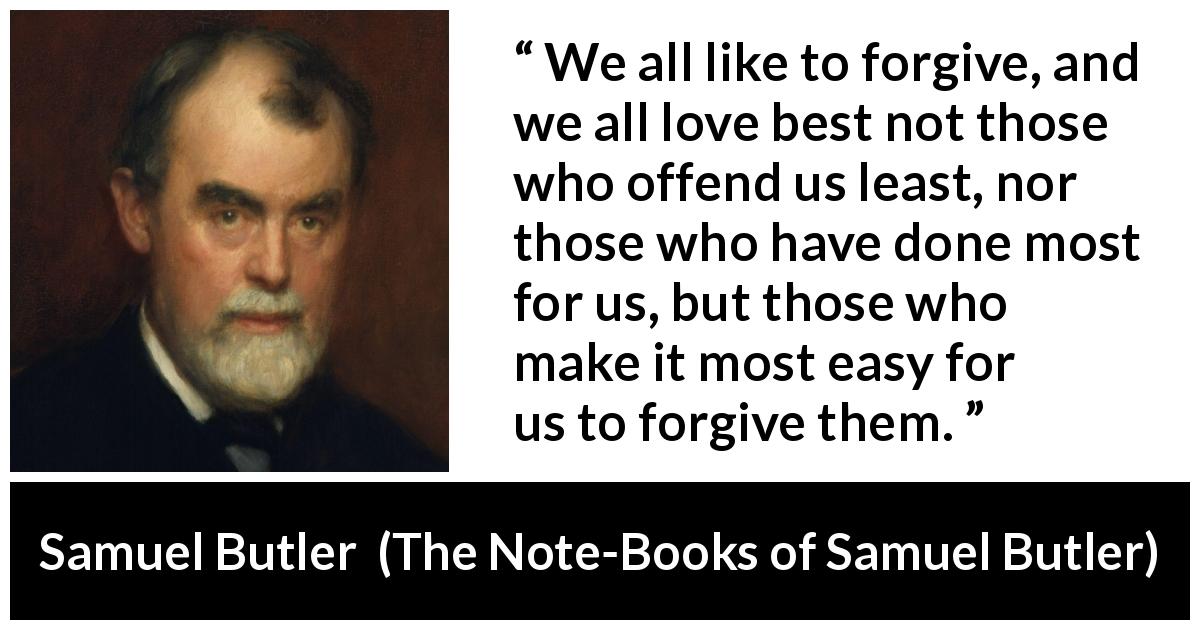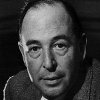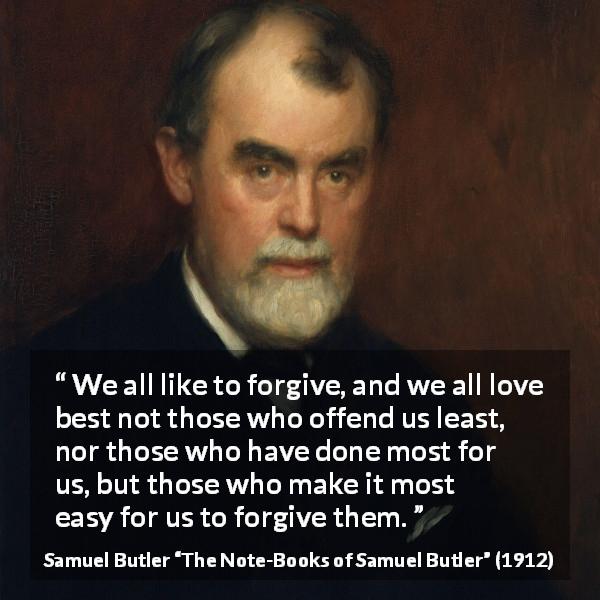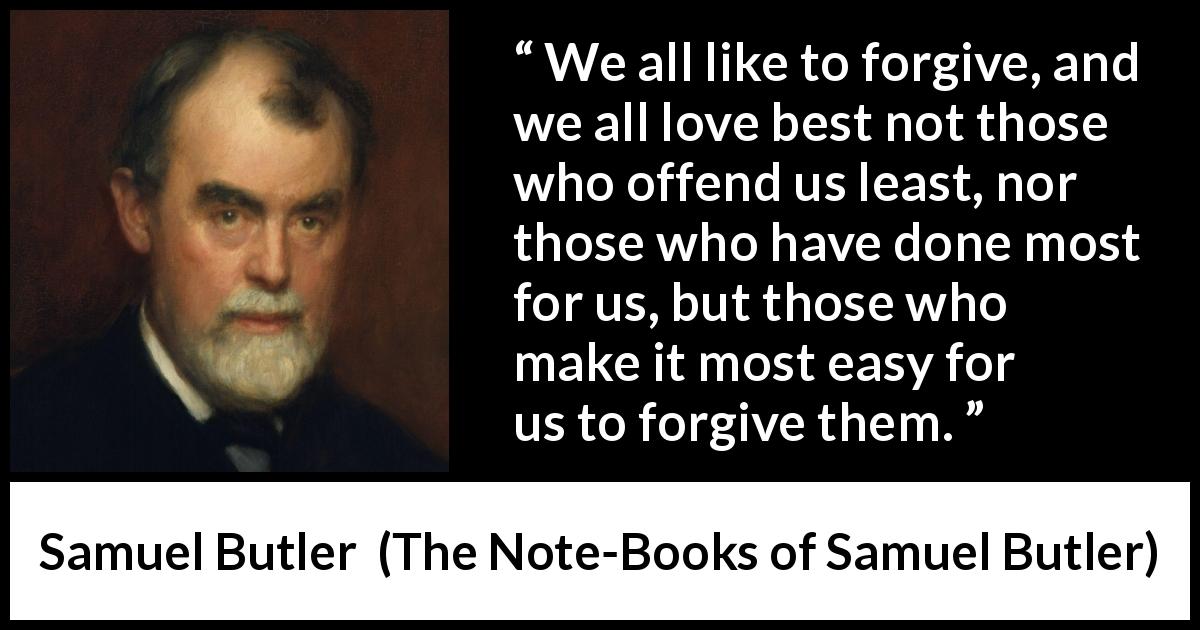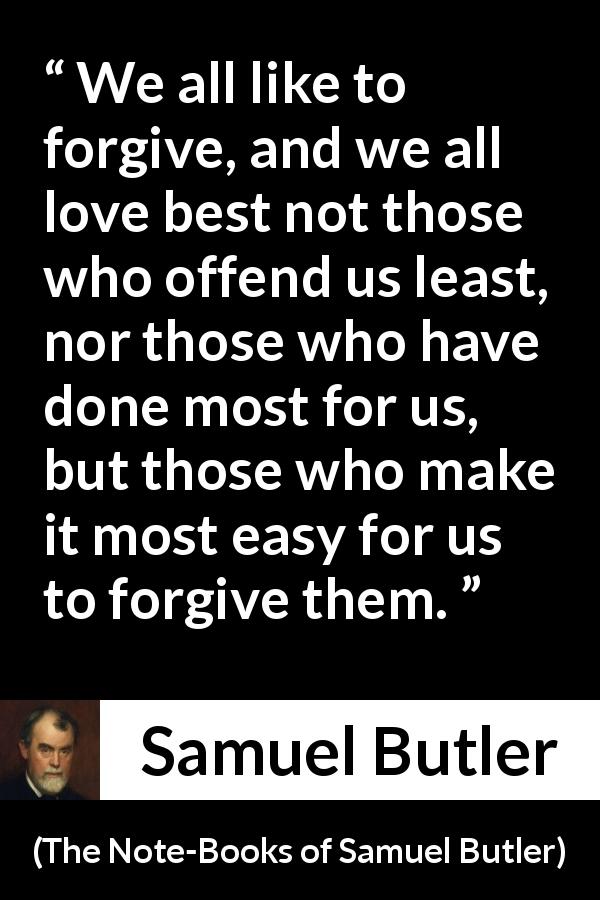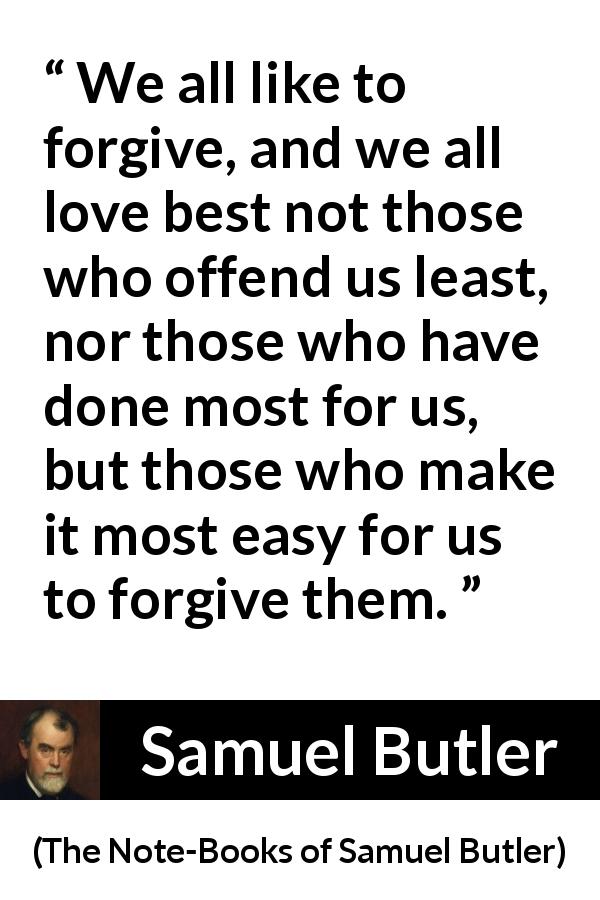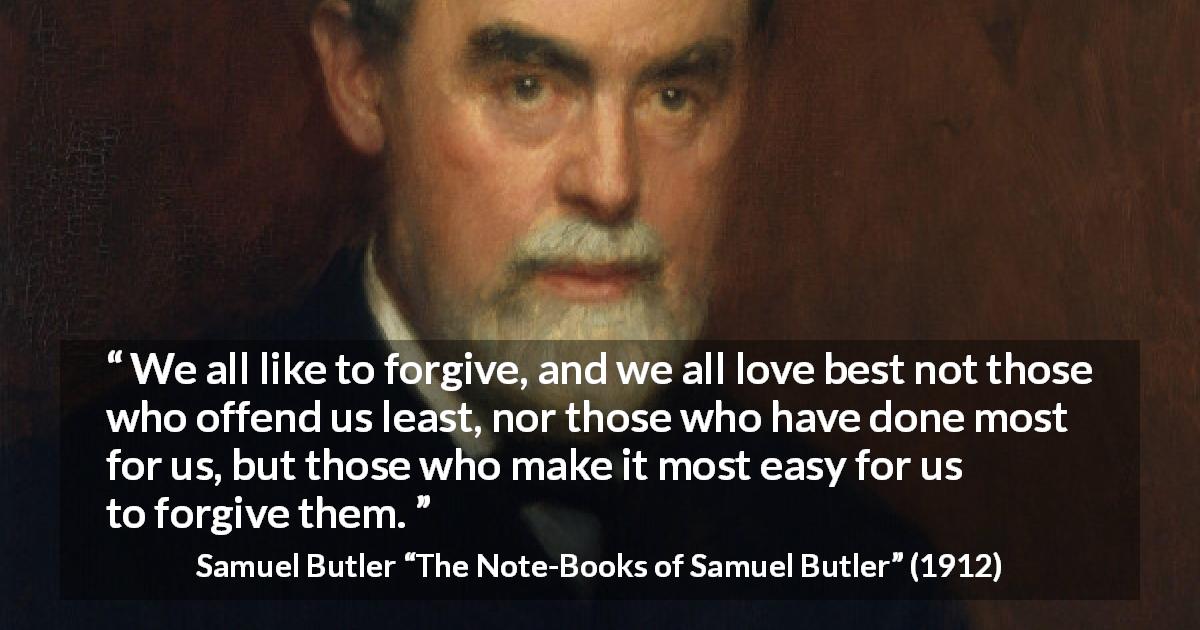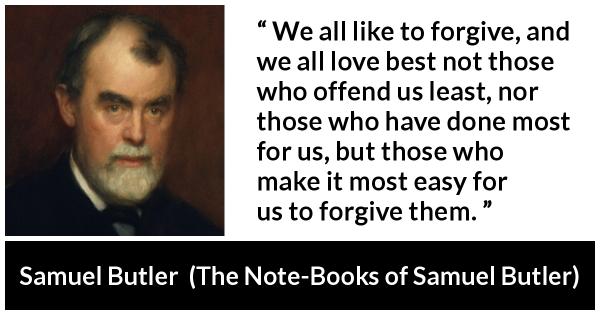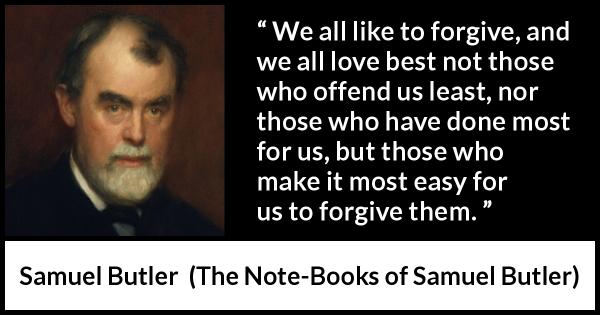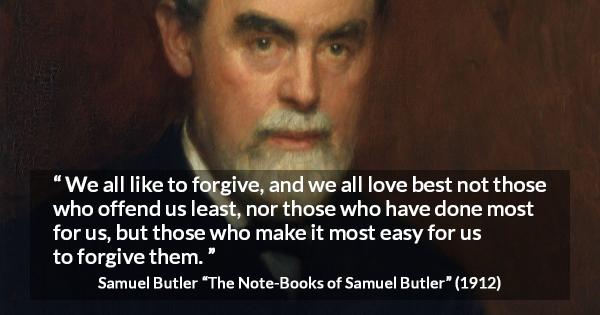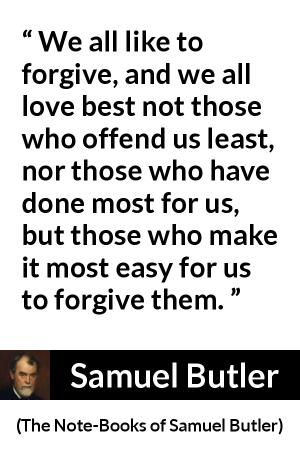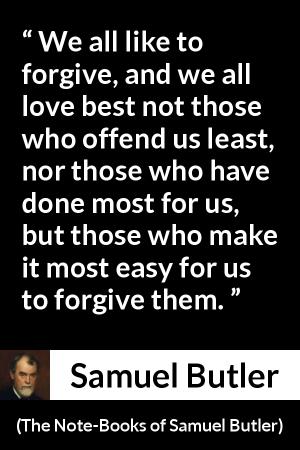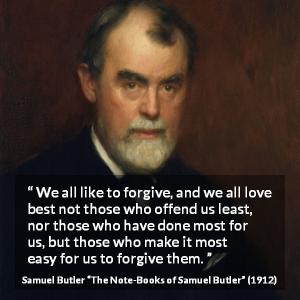“ We all like to forgive, and we all love best not those who offend us least, nor those who have done most for us, but those who make it most easy for us to forgive them. ”
Samuel Butler, The Note-Books of Samuel Butler (1912). copy citation
| Author | Samuel Butler |
|---|---|
| Source | The Note-Books of Samuel Butler |
| Topic | love offense forgiveness |
| Date | 1912 |
| Language | English |
| Reference | |
| Note | |
| Weblink | http://www.gutenberg.org/files/6173/6173-h/6173-h.htm |
Context
“If a man refuses to make them and habitually indulges his own selfishness at the expense of what is due to other people, he is no better than a drunkard or a debauchee, and I have no more respect for him than I have for the others.
We all like to forgive, and we all love best not those who offend us least, nor those who have done most for us, but those who make it most easy for us to forgive them. So a man may lose both his legs and live for years in health if the amputation has been clean and skilful, whereas a pea in his boot may set up irritation which must last as long as the pea is there and may in the end kill him.” source
We all like to forgive, and we all love best not those who offend us least, nor those who have done most for us, but those who make it most easy for us to forgive them. So a man may lose both his legs and live for years in health if the amputation has been clean and skilful, whereas a pea in his boot may set up irritation which must last as long as the pea is there and may in the end kill him.” source
